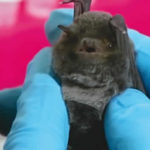Dr Rasaq Olanrewaju Abu has been in medical practice since 1984 and currently runs a clinical cardiology practice in College Park, Maryland, USA. In this interview conducted online by SAHEED SALAWU, Dr Abu speaks on why the huge number of deaths being experienced in Europe due to COVID-19 pandemic and America may not manifest in Nigeria.
Doctor, there is an ongoing global search for a cure for COVID-19, how soon do you think we can get that?
This is a subject of intense research globally. As to when a cure would be available, it is hard to say, but there is hope that medication for prophylaxis, and treatment of active infection may soon be available.
Again, there are epidemiological discussions dividing the world into Infestation Belt and Malaria Belt in an effort to explain the disparities in the percentage of deaths and severity of infection between countries in these belts. You recently contributed to that debate. Can you help shed more light on this, sir?
Yes. As you pointed out, there is evidence from several studies, some of them still ongoing and some concluded with data that point to a disparity between the infection rates in the malaria belt (with low infection rate) and the coronavirus infection belt (with high infection rate) from COVID-19 infestation.
You recently contributed to a discussion on distribution of coronavirus infestation in regions of the world. Could you give a little clarification on your observation especially on a map trending online?
A statistical analysis of the worldwide distribution of COVID-19 infestation was done by Worldometer, a worldwide statistical analytic organization based in the United States of America in March 2020. The result was compared to the worldwide distribution of malaria done by ‘Our World in Data’, another statistical analysis group also based in the United States of America. A pictorial depiction of this comparison was published by Worldometer on March 14, 2020. While sitting down to review these maps, I made an interesting observation.
And what was that?
First of all, in what they published, on the top map, the blue area shows the Malaria belt, and on the bottom map, the yellow area shows the COVID-19 infection belt.
When you compare these two areas, there is a discordance between the areas of spread of Malaria and COVID-19 infection.
My observation was as follows :
On the top map, the blue area represents the Malaria belt, and on the bottom map, the grey area excluding the arctic and Siberia, represents the area with minimal spread of COVID-19 Infection.
When you now compare the blue area on the top map representing the Malaria belt, to the grey area on the bottom map representing the belt with minimal spread of COVID-19 Infection, the concordance is outstanding. This means there is something already present in the Malaria belt before exposure to COVID-19 that prevents the development of Coronavirus Infection after exposure to COVID-19. This suggests there is herd immunity in the Malaria Belt against Coronavirus. What confers this immunity, be it ant-malaria drugs in the system of the people, or the genetics of the people, is unknown, and these are the subjects of intense ongoing trials and research. The result of one of such researches which happens to be an analytical study was what is shown in the study maps from which I made my observation. But whatever it is, God is good. This is my theory of divine intervention. I believe fellow Nigerians have no fears.
You said Nigerians should not panic over the pandemic but official alarms continue to sound that worse days are ahead. You don’t think those who say this could be right? Where did you get your optimism from?
Again, as I explained in my piece, the low rate of infection in the malaria belt suggests the presence of herd immunity in the Malaria belt and the fact that Nigeria is within the malaria belt is the source of my optimism.
There are also discussions and studies on chloroquine for prophylactic and treatment uses against COVID-19, can we have your position on this, too?
My position on this is that anti-malaria medication of quinine base like chloroquine, hydroxychloroquine, and quinine in our own “AGBO IBA” used to treat Malaria in Yoruba Land, may have a role in this herd immunity. Should that be the case, then the people regularly exposed to mosquito bites and who, therefore, are more pre-disposed to developing malaria and who take quinine based medicines for malaria, and who are the ones at risk of contracting COVID-19 for many reasons, including poor living conditions and urban congestion, are the ones protected from developing coronavirus infection. This singular point is the origin of the divine intervention in the title of my piece. It is also for this reason that I have been advocating that people who are privileged in Nigeria, and all people in the western world, should take small doses of chloroquine, hydroxychloroquine, or quinine daily throughout this pandemic. We need data to guide us to more accurately do the prescribing, and seeking such data is the basis of several ongoing trials, but time is really not on our side. I, therefore, propose taking a small dose of 50mg or quarter tablet of chloroquine or hydroxychloroquine, or a 12oz bottle or a glass of tonic water daily throughout this pandemic for those who need it. This is an off label use. I personally now take one glass of tonic water every morning for quinine because that is what I could get here.
Looking at the way the developed world has handled this pandemic and the way we are going about it in Africa, in what areas do you think both sides could benefit from each other›s experiences?
Apart from improving the healthcare delivery system in what is assessed as lacking with each system, prophylaxis and readiness for treatment are the key.
Health workers continue to be victims of infectious epidemics. Have you had any personal experience of this or seen or have a close colleague falling victim?
I have lost some colleagues in the line of duty, and may their souls rest in peace.
ALSO READ: COVID-19: Sokoto Extends Border Closure By Two Weeks
What advice do you have for Nigerians who suffer lockdowns and nurse fears of mass death from this disease?
While I am keeping my fingers crossed till the pandemic is over, and I know we still have about four weeks to go, I believe God has done this one. I was afraid for my fellow Nigerians because coronavirus has the propensity to wipe out an entire people. I kept praying to Almighty God to please help the helpless, and the moment I saw that map, I knew God has answered our payers in Nigeria; He has come to the defense of the defenseless. I will advise Nigerians to hang on to their faiths in God, hold on to and help each other, whilst doing their best to obey the stay home order. And that they should practice social distancing and hand washing. This too shall pass, hopefully soon, and life will return to normal once again.
Something personal here. What is your daily routine like? What is your favourite food? Your favourite song, music and musician?
My daily routine is work, Monday through Friday. My favorite food is eba with okro soup and assorted meat and my favorite song is mukulu muke by Ebenezer Obey.
Nigerians would like to know a little of your background and career history sir?
I am Dr Rasaq Olanrewaju Abu. I was born into the Abu family of Ijebu-Isiwo, Ogun State, on April 3, 1959 to late Chief Alhaji Ganiyu Olatunji Abu and late Madam Mulikat Anike Abu. I began my secondary education at Old Ahmadiyya College, Agege (now Nawarudeen Islamiyya Grammar School, Agege) in January 1972, transferring to Igbobi College, Yaba, in September 1973 and finishing ‘O’ level in June 1976. I then proceeded to the Federal Government College, Odogbolu, for ‘A’ level in September 1976 through June 1978. I gained admission to the University of Ibadan College of Medicine in September 1978, graduating in September 1984 with MBBS degree. After housemanship, national youth service, and a brief period of practice in Lagos, I emigrated to the United States on July 8, 1987.
After a period of preparation, I did Residency in Internal Medicine at Howard University Hospital, Washington DC from July 1990 through June 1993, followed by a Fellowship training in Cardiology also at Howard University Hospital from July 1993 through June 1996. Upon finishing my training, I went into private cardiology practice in the Washington DC Metropolitan area with privileges in many hospitals, including Doctors Community Hospital, Lanham Maryland, where I rose to become the Chief of the Division of Cardiology from 2003 through 2005. I currently have a recently reconstituted clinical cardiology practice in College Park, Maryland, USA.
Who is your role model in medical practice and why that person?
My role models in medical practice are late Professor Olurin, UCH, Ibadan; Dr Nayab Ali, DC General Hospital, Washington DC, USA and Dr Benjamin Carson, retired neurosurgeon, current HUD Secretary, USA.






